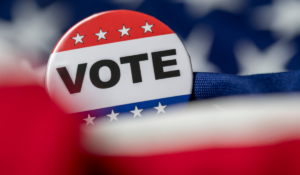Consumers warned to beware of lottery and sweepstakes scams


COLUMBUS, Ohio – With the high Mega Millions and Powerball jackpots, Ohio Attorney General Mike DeWine is warning consumers to beware of phony claims that they’ve won millions. Sweepstakes and lottery scams have been reported throughout Ohio in recent weeks.
The scams often begin with a call or letter claiming a person has won millions of dollars in a lottery or sweepstakes. The person is asked to wire a few hundred dollars or more to cover processing fees or taxes in order to receive the winnings. In reality, there is no prize and any money the person sends will go to a scam artist.
“If you get a call saying you’ve won millions but you have to pay to receive it, it’s just not true,” Attorney General DeWine said. “You shouldn’t have to pay to receive a prize you’ve already won. Even if the person claims to be affiliated with a real lottery, don’t believe the claims, and don’t send your own money.”
The Ohio Attorney General’s Consumer Protection Section has logged over 80 complaints involving sweepstakes or prizes in 2018. The average reported loss is more than $13,000.
While the scams often begin with a call or letter, they also may start on social media. A con artist may pose as a person’s friend and send a message saying the person has won money. The claim may seem more believable because it appears to come from a friend, but it is actually part of a scam.
Tips to avoid sweepstakes and lottery scams include:
Don’t send money to receive a prize. Legitimate sweepstakes or lotteries will not charge you to receive your prize. Don’t trust people who contact you unexpectedly, claim you’ve won a lottery or sweepstakes, and ask you to pay to receive the prize. If you truly won, you shouldn’t need to send your own money in advance to receive your winnings.
Be skeptical if a “friend” sends you a message saying you’ve won a lot of money. The message may be part of a scam.
Be wary of requests for wire transfers, money orders, or gift cards. These payment methods are used frequently in scams. Once the money is sent, it is difficult to trace or recover it. Also, be wary if you receive an unexpected check in the mail. It may be a counterfeit check used as part of a scam.
Talk to friends and family about scams. Older adults can be especially vulnerable to lottery and sweepstakes scams. If you have older relatives, talk to them about scams and look for signs that they have been targeted. Red flags include unusual banking activities, wire transfer receipts, and an increased number of phone calls made to them.
Consumers who suspect a scam or an unfair business practice should contact the Ohio Attorney General’s Office at www.OhioProtects.org or 800-282-0515.









